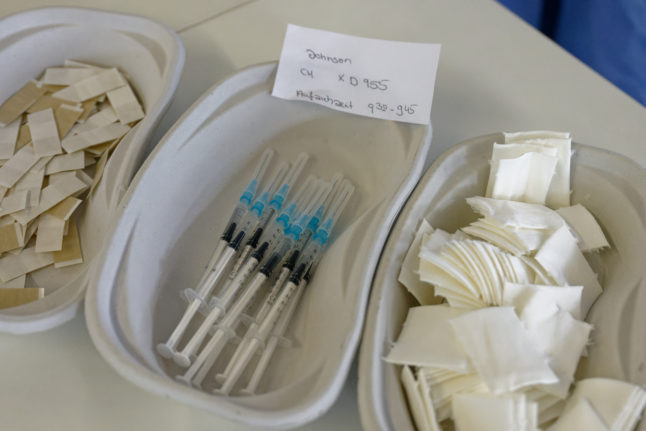With the majority of people over 60 expected to be already vaccinated by June, Health Minister Jens Spahn (CDU) said authorities decided not to restrict the jabs to older people over the very rare thrombosis risks.
Rather, younger people can choose to take the vaccine, which only requires one shot, after consultation with their doctors, he said.
Spahn noted that some 10 million doses of Johnson & Johnson vaccines would be delivered over June and July — when older people who want the jabs would already have been vaccinated.
“So we are lifting prioritisation for Johnson & Johnson, like we have done for AstraZeneca… so that everyone can have the possibility of getting vaccinated after clarifications with their doctors and based on their individual decisions,” said Spahn.
READ ALSO: Germany gives green light to offer AstraZeneca vaccine to all adults
The move would allow Germany “to work on this vaccination campaign with greater speed, in a pragmatic manner”.
Germany had initially recommended AstraZeneca vaccines only for older people following concerns over several blood clotting cases among younger recipients of the vaccine.
But it has since opened the jabs up to all adults who want them after consultations with doctors.
The European Medicines Agency has said that blood clots should be listed as a rare side effect of both the Johnson & Johnson and AstraZeneca jabs but that the benefits continue to outweigh risks.
Both vaccines use the same adenovirus vector technology, unlike jabs made by BioNTech/Pfizer or Moderna, which are messenger RNA vaccines.
So far, only about 18,000 of the 34.4 million vaccine doses administered in Germany have come from American manufacturer Johnson & Johnson.
The latest numbers show that 7.6 million people in Germany have been completely vaccinated, or 9.1 percent of the population.
Nearly one in three, or 32.3 percent, has received at least a first shot.



 Please whitelist us to continue reading.
Please whitelist us to continue reading.
Does anyone know where we can go to get this in Berlin?
I tried calling the hotline and they said I still had to wait if I wasn’t in the third priority group.